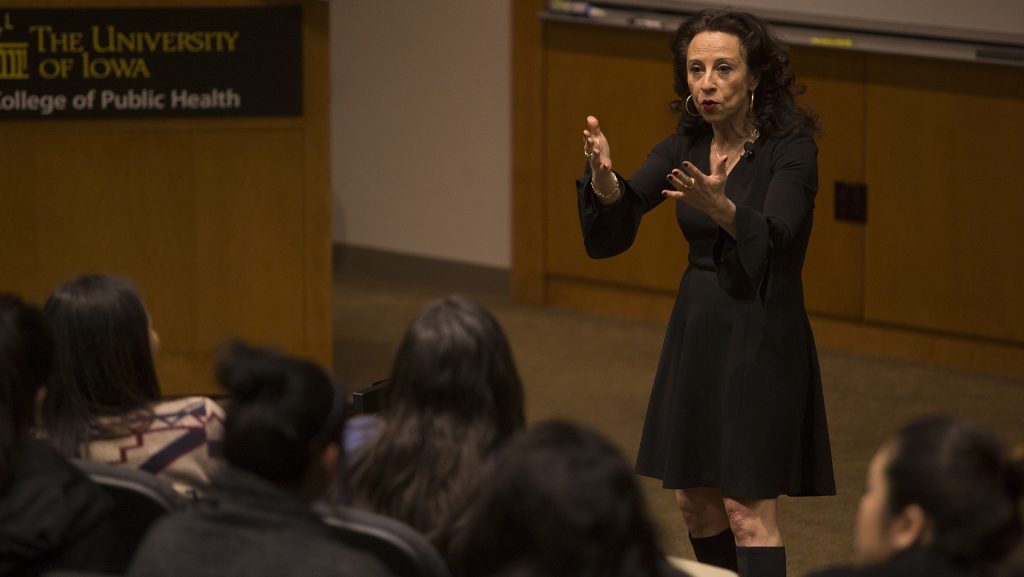Maria Hinojosa, a journalist for more than 30 years for media outlets including CNN, spoke about disparity at the College of Public Health Building on Monday night.
Hinojosa was born in Mexico City and raised in Chicago. She now lives in Harlem, New York City.
Hinojosa began by saying she sees disparity every day.
“If some people in our community are rising, then others are falling,” she said. “There’s a lot that I learned from those communities [who bring less], and it’s important to recognize what they bring to the conversation.”
Hinojosa said the norm is that Latino children bring disparities, but nobody actually sees what they also bring in: social skills.
Latino children bring respect for the teacher, respect for the institution, and respect for the possibility to be collective, she said.
“We don’t talk about that,” Hinojosa said.
She also spoke about legal rights, noting that there are people in the country who are denied due process every day.
“The biggest disparity is Latinos are being subjected to live under this big storm because they are being denied due process,” Hinojosa said.
Latinos suffer because they are visible and easily spotted if they are not born in this country, she contended.
“There are people trying to redefine the USA as a country that doesn’t need immigrants anymore,” Hinojosa said. “This thought has made its way deep into the White House.”
Focusing on Latinas, Hinojosa said they are the most sought-after consumer, but they are paid less per hour than any other women in the U.S.
There is also disparity in the media, she said.
“There are fewer people of color working in the media than there were before 9/11,” she said.
Hinojosa then flipped the conversation to powerfulness in disparity.Emma Gonzalez, an active leader in the March for Our Lives, has shown what it looked like to do an open-eyed, six-minute meditation, she said.
“If we flip disparity, we have a whole new class of leaders coming up here,” Hinojosa said.
In Hinojosa’s company, she said, they do not use the word “illegal” to describe someone because she said a human cannot be illegal. Her company also does not use the word “minority.”
“I see a tremendous amount of hope,” Hinojosa said. “This is the birth of new formal activism. How exciting that we’re actually living through that.”
Hinojosa’s speech attracted not only UI students but faculty as well.
“Maria’s visit has energized and refocused our power as Latinx members of the UI campus,” said Barbara Baquero, who works in the College of Public Health. “She has reminded us how much we bring to campus and the state.”
Vice President for Student Life Melissa Shivers said she was particularly struck by Hinojosa’s focus on speaking truth to power.



